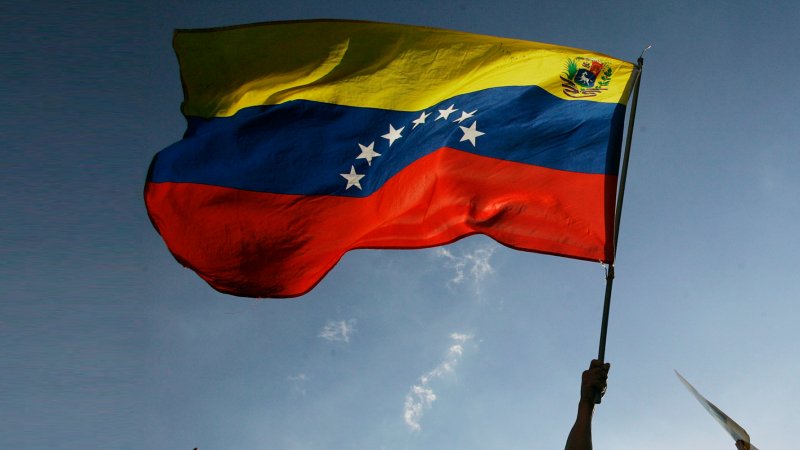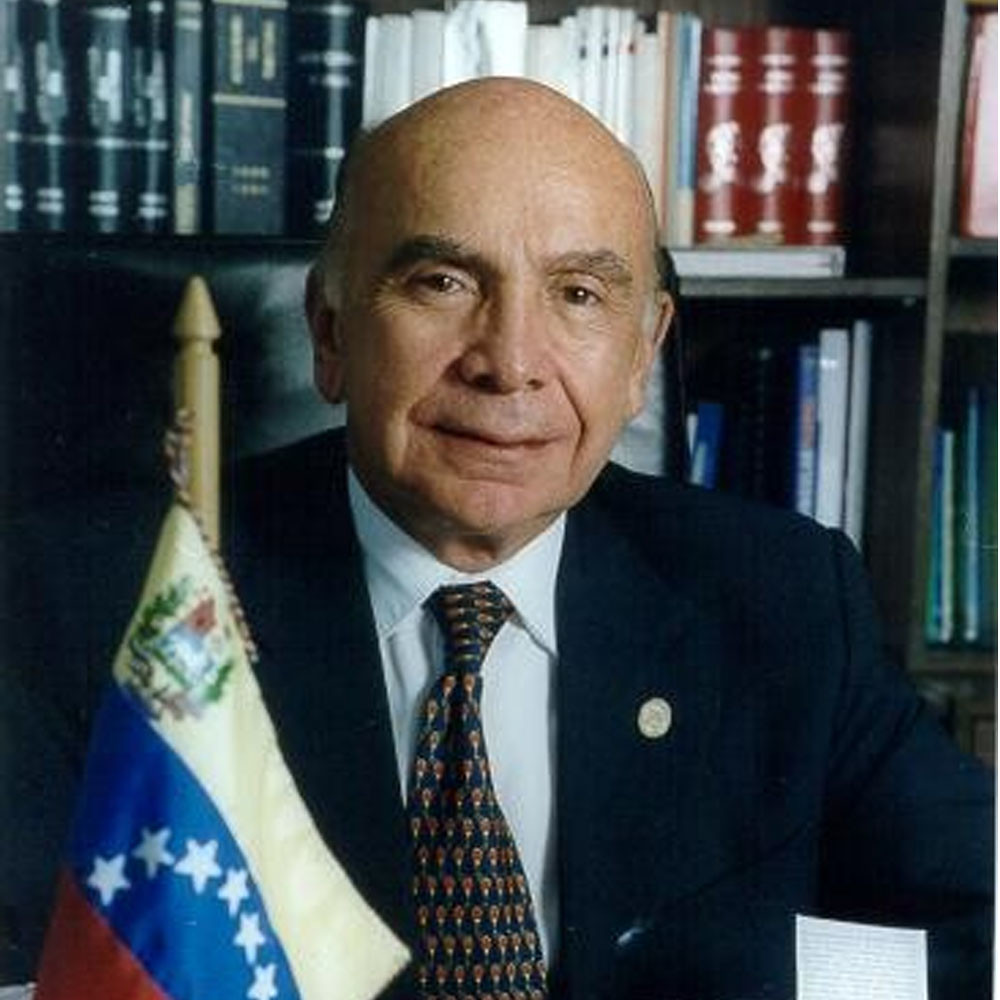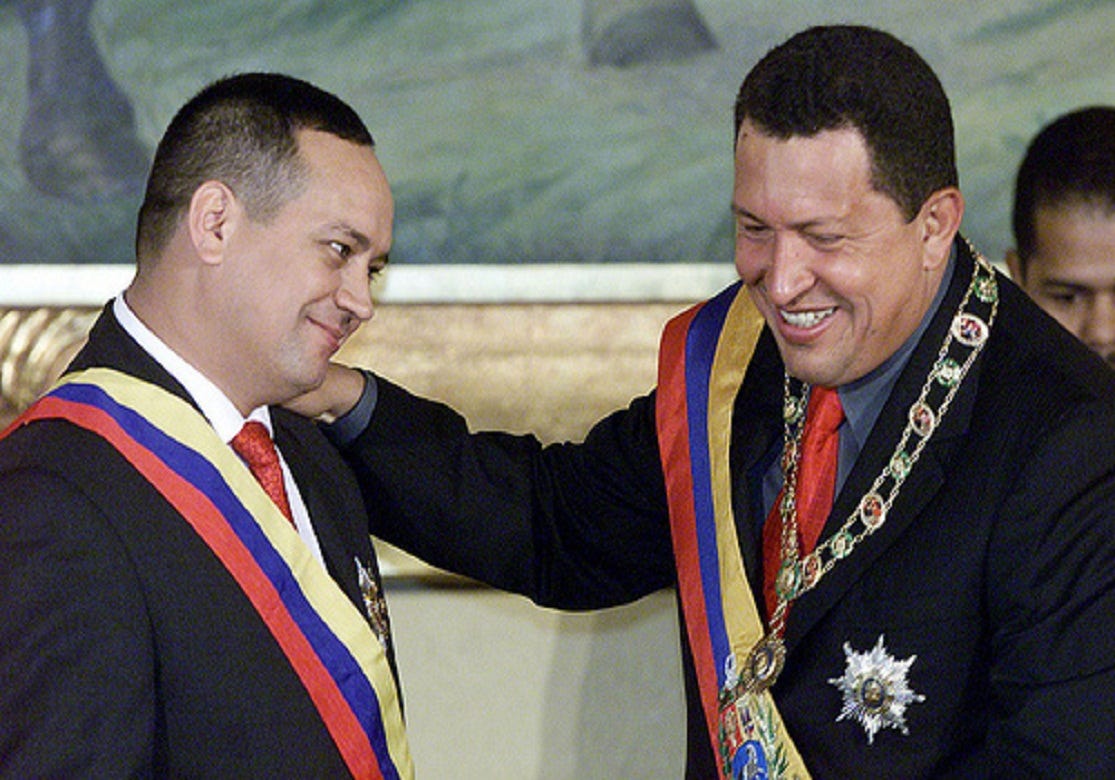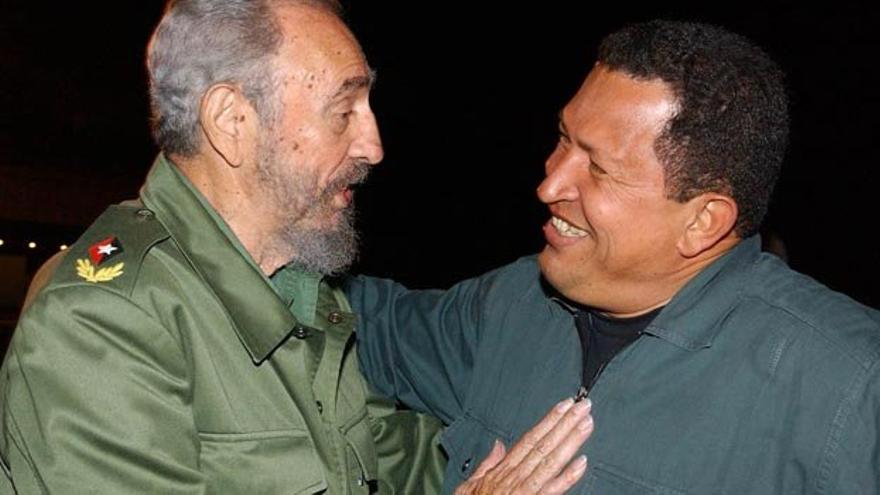Presidential Chronology of Venezuela (1994-2019)
To understand the events that have occurred in recent years, let's review the presidential chronology of Venezuela in the last 25 years:
Rafael Caldera (February 1994 - February 1999)
Convergence Party
- Attorney General and President of the Chamber of Deputies
- Founder of COPEI
- Essayist, doctor of political science, deputy, professor
Chronology
Popularly elected between 1994 and 1995, the financial crisis worsened and several banks were intervened.
SENIAT is created in a context of low and stable oil prices.
In 1994 Caldera dismissed the 1992 military insurgents, leaving free Hugo Chávez among others.
In the economic sphere, the so-called Agenda Venezuela is applied, a program oriented towards the oil opening, the attraction of new investments to the country and control of the fiscal deficit, among other measures.
The anti politics and the criticism of the parties in their apogee.
Hugo Chávez (February 1999 - July 2000)
Movement 5th Republic
- Professional military
- Popularly elected.
Chronology In April there is a consultative referendum to call a Constituent Assembly and refound the State. The proposal triumphs.
In July, the election for said Constituent Assembly is held.
In December, the work of the old National Congress ceased.
That same month, after the approval referendum, the 1999 Constitution was promulgated. Presidential term extended to 6 years with immediate re-election.
The Recall Referendum is introduced, two new powers are introduced and the position of Vice President is reinstated, nonexistent in the 1961.
From January to August 2000, the National Assembly functions in a similar way to a delegated commission with few deputies, who will be responsible for continuing with the legislative affairs of the country and popularly called as the "Congresillo" (little congress).
According to the new Constitution, general elections are called again.
July 2000 - April 2002
Popularly elected.
The political map changes again; the old parties begin to decline while the new revolutionary forces begin to establish a new hegemony.
In Congress the ruling party gets broad support.
Although Chávez is sworn in in August 2000, the Supreme Court of Justice indicates that the formal exercise of the sexennium began in January 2001.
The president requests an Enabling Law that is approved by Congress to legislate in different matters.
This generates strong criticism from the opposition that gathers around the CTV and Fedecamaras making a general strike in December.
Tensions are increasing and in April 2002 PDVSA management rejects government interference. A stoppage of activities begins. The CTV joins and Chavez dismisses several employees of the company on TV.
On April 11th there is a march that ends up arriving at the Miraflores Palace and several murders take place.
The Armed Forces disregard the orders given by the president and demand the resignation which does not occur.
Chávez is captured by the military and held in Fuerte Tiuna.
Pedro Carmona Estanga (April 2002)
Independent
- Economist of the UCAB.
- Professor, businessman, director of several companies, and president of
Fedecamaras.
Chronology
Self-proclaimed president (de facto president).
Faced with a situation of confusion and uncertainty, the momentary emptiness of power is assumed by Estanga.
It gives a coup by violating the constitution with his assumption and dissolving the constituted powers of the republic.
A part of the armed forces led by Isaías Baduel go to the rescue to the president and Estanga runs away.
Diosdado Cabello (April 2002)
Movement 5th Republic
- Professional military
- Vice president, minister, governor, deputy and president of the AN.
Chronology
Vice President at that time, before the April coup goes into hiding but once government forces resume control returns to Miraflores.
He is sworn in as provisional president by the president of the AN until the return of Chávez on April 14th.
Hugo Chavez (April 2002 - January 2007)
Movement 5th Republic
- Professional Military
Chronology In the following months, the Organization of American States installed a dialogue table between government and opposition that does not achieve great progress. Marches and pronouncements against the government take place.
In December 2002, an oil strike occurred that was carried out by other industrial sectors.
Fails in January 2003 and the government gains control of PDVSA.
Polarization grows in the country and low levels of government popularity are registered.
In mid-2003 Chávez created the "Misiones" important social assistance programs that are responsible for helping the population from their food and education to the construction of housing. His popularity begins to increase.
In August 2004 the government triumphs in the recall referendum activated by the opposition.
Opposition leaders denounce fraud and adopt a strategy of not attending the next elections.
As a result, the ruling party takes over most of the regional offices and the AN in 2005.
January 2007 - January 2013
Popularly elected
He begins his new mandate tracing the new course of the nation towards the "Socialism of the 21st century".
The expropriation and nationalization policy was intensified in 2007 with the purchases of CANTV and electricity from Caracas.
RCTV must leave the air because its concession is not renewed.
In December of 2007 a project of constitutional reform is promoted that looks for the update of the Magna Carta in the way towards the Socialism.
It considered, among other things, the introduction of the communes and the immediate and unlimited re-election of the president. The government loses by narrow margin.
Inflation in the country begins to be a problem and high crime rates are registered. The private initiative loses space in front of state companies.
Some opposition parties consider a strategic alliance creating the Table of the Democratic Unit in January 2008 as an opposition block.
Later other political organizations were incorporated.
Chávez creates a unique party that brings together different forces of the left: United Socialist Party of Venezuela in March.
The political polarization is based in the country between these two blocks.
Popular reform of the 1999 constitution was approved in February 2009. This new proposal focused mainly on allowing indefinite re-election in all elected positions including the president.
Corruption continues in the country as one of the worst scourges. Also the inefficiency in some state entities. (Case PDVAL May 2010).
Crisis in the energy sector between 2010-2011 leaves recurrent failures in the supply of electricity.
The policy of housing construction continues, the underground lines are expanded in Caracas and the construction of other undergrounds in Valencia, Maracaibo and other cities begins. New roads and bridges are also built.
New public universities like the UBV are created. In terms of health, the "Barrio Adentro" module network is expanded and other health centers are completed.
Creation of the Bolivarian National Police as a mechanism to fight against insecurity.
January 2013 - March 2013
PSUV
Popularly elected, however, due to his cancer travels to Cuba suffers to be treated. Temporarily in charge of the presidency Nicolás Maduro, vice president of the moment.
In case of death, Chávez designates Maduro as his successor.
Chávez dies in March.
Nicolas Maduro (March 2013 - April 2013)
PSUV
- Militant of the Socialist League and left groups.
- Driver and union leader of the Caracas Metro.
- Deputy, president of the AN, Chancellor and Vice President.
- The TSJ ratifies Maduro as provisional president and early elections are called.
Chronology
April 2013
Popularly elected to complete the period of his predecessor.
Presents the Plan of the Nation (plan proposed by Chávez in the 2012 elections) as a road map of the nation towards Socialism.
The problems of product shortages, high inflation and insecurity grow.
In February 2014, peaceful protests against the country's major problems involving university students were unleashed in different states of the country.
During March and April the demonstrations continue and in some regions of the country they become violent with arrests and abuses by the Armed Forces and vandalism by some groups.
Several protesters die in the course of these events.
In April a UNASUR commission together with the Vatican offer themselves as mediators for a dialogue between the political opposition and the government.
On the other side, the students continue on the streets following their own agenda of protest against the government.
Nicolás Maduro is not the only problem in Venezuela
Neither Castro's Cuba, nor the Colombian armed conflict or any of the dictatorships of the Southern Cone caused the departure, in less than two years, of more than two million people. But leaving Nicolás Maduro is not the solution to the Venezuelan crisis.
Neither the exit, nor the overthrow, nor the death of Nicolás Maduro would solve the Venezuelan crisis in the short term. The country has not only experienced a process of democratic deterioration, but also the dismantling of the State and the disruption of its social relations.
Opposition leaders have focused their speech on the urgent need to remove Nicolás Maduro and the ruling group, arguing that the humanitarian crisis makes the support of the Chavez regime unviable and that their departure will lead to the reconstruction of the country. Some predict that it will not reach the end of the year.
And it is understandable, the opposition political leaders speak to a desperate people in the midst of the Chavista apocalypse, they also speak to an international community that until very recently was silent about what was happening in Venezuela. Fixing the exit of Nicolás Maduro as the central objective of their speech is valid and even necessary, since there are still a few sympathizers or accomplices of the first Latin American dictatorship of the 21st century.
But Nicolás Maduro is not the only cause of the humanitarian crisis in Venezuela; on the contrary, the crisis is the result of almost 20 years of a speech that sought to divide society between good and bad, between a corrupt elite and an oppressed people. A humanitarian crisis caused by the implementation of a political, economic and social model based on socialism and promoted by Hugo Chávez, who even arrogated to himself the right to appoint his successor.
The damage that Chavez did to Venezuela is not limited only to the appointment of Maduro. For years the institutions and organizations of the State were dismantled, but even relations between citizens and the different instances of civil society were altered. The Bolivarian Revolution not only damaged the State and the political and economic spaces of the country, but also damaged the family, friends, community, society and all of Venezuela.
In a few places in the world the disaster has been evidenced as in Venezuela. The material and social decline of the country is difficult to calculate. Not only because of the lack of official figures, whose absence can not hide the deterioration of the quality of life of the people, but because the only diagnosis is already a complex task. Despite the efforts made today by different civil society organizations to document what is happening, the real dimension of the problems is hard to calculate, because the government not only refuses to make information public, but conceals and lies, without caring the risk to which it exposes its citizens.
As if it were a war, a natural disaster or the proliferation of a plague, Venezuelan citizens have been forced to leave their country. The deterioration of the quality of life, the political instrumentalization of the economic crisis and the discretionary use of the organizations of the state apparatus to proscribe and persecute, have led millions of citizens to leave Venezuela. None of the right or left dictatorships that Latin America experienced in the 20th century caused a diaspora like the one that the brother country lives. Neither Castro's Cuba, nor the Colombian conflict or any of the dictatorships of the Southern Cone caused the departure, in less than two years, of more than two million people.
A diaspora that accumulates more than 10% of the population not only evidences the disaster that Chavismo has caused, but also intensifies the crisis and hinders its possible solution. The millions of Venezuelans who are outside the country will not return as soon as the dictator falls, a significant number of them will never return.
Maduro intensified the crisis, because at least in the time of Chávez, the project was pretended to be democratic, so the elections were advantageous. With Maduro the forms are no longer taken care of and the darkest face of the chavista repressive apparatus was known: deaths, kidnappings, threats, tortures, persecutions ... The repression in all its forms is what characterizes the ruling group; the systematic violation of human rights as an instrument to remain in power.
In order to rebuild Venezuela, Maduro's exit will be necessary, but this does not mean that with the departure, overthrow or death of Nicolás Maduro, Venezuela will be rebuilt. Some projections affirm that USD 50,000 to USD 60,000 million are needed to begin the reconstruction process, to which a minimum average of USD 3,000 million in annual aid is added to begin to reverse the humanitarian crisis and even some projections affirm that for the recovery of the oil industry would require at least six years to a decade with annual investments of approximately USD 20,000 million, something difficult to obtain in a world in which oil is losing its energy leadership.
Everything indicates that the process of recovery will not be easy or quick: reversing the damage of chavismo can take the same as it has been in power, almost twenty years, or more.
- Arias, A. - History of Venezuela
- Cadena Carriles - Notes History of Venezuela
- Venezuela Yours
- Reference for business
- La Nación newspaper (Argentina)
- El País newspaper (Spain)
- El Espectador newspaper (Colombia)









